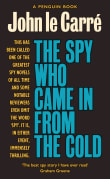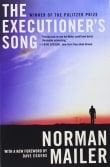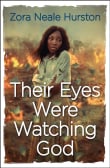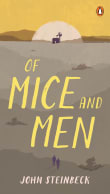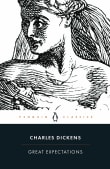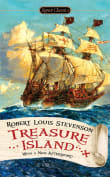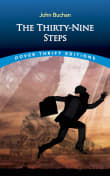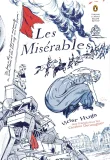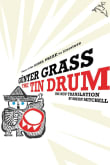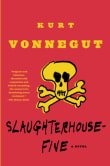Crime and Punishment
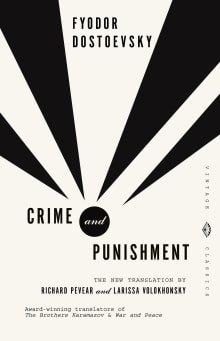
Book description
Hailed by Washington Post Book World as “the best [translation] currently available" when it was first published, this second edition has been updated in honor of the 200th anniversary of Dostoevsky’s birth.
With the same suppleness, energy, and range of voices that won their translation of The Brothers Karamazov the…
Why read it?
14 authors picked Crime and Punishment as one of their favorite books. Why do they recommend it?

The perfect crime? Actually not! It was so imperfect that it turned into the perfect crime by just pure luck. No clues were left behind. In fact, there was nothing to trace the murder back to the murderer except his own guilt.
His guilt turned out to be his biggest punishment. When he finally surrenders, he feels at peace–the long-eluded peace.
From Shobana's list on classical books that teach you about psychology.

A classic must-read for anyone who is satiated by oxygen. I love the psychology of the main character. His decline after committing an atrocity is notable for its detail. The concern shown for him by his friends and family, who do not know the truth, feels natural and warranted in spite of the reader's knowledge.
Is it possible to feel empathy for someone who commits such an act? In a strange way, I found myself questioning my own biases on the topics of crime and punishment after reading this classic.
From Sam's list on questioning reality.

A true classic with themes as equally relevant today as they were over 150 years ago.
I first read it when in HMP Dorchester, a Victorian-era prison that is now closed. Told from the perspective of a student who unintentionally becomes a murderer, it compels the reader to think deeply about how the routes into crime can be many and varied, along with the nature of power.
Whilst very little of the book covers time spent in custody, before the end it shows the main criminal protagonist, Raskalnikov, as achieving a level of redemption. The book also discusses elements of…
From Stephen's list on the power of redemption.

This classic novel about struggling for redemption after a horrific crime affected me deeply. Raskolnikov’s poverty and radical ideology drive him to robbery and murder.
As a lapsed Catholic, I was gripped by Dostoevsky’s rich exploration of why Raskolnikov did it, examining altruistic Christian ideals alongside new and dangerous notions about the prerogatives of “exceptional” men. The novel virtually invented the crime drama, with the original troubled killer pursued by the original wily detective.
The cast of characters, from the sympathetic Sonya, whose religious faith moves Raskolnikov, to the unscrupulous Svidrigaylov, who embodies irredeemable depravity, is as rich as the…
From Andy's list on literary with criminal protagonists.

I keep rereading this amazing novel!
This is the most faithful translation I’ve found (and quicker than reading the Russian!).
Even the famous translator Garnett simply rewrote little things she didn’t understand, like the scene renaming little Lida as Lenia (i.e., as Helena, who helped convert the Roman Empire to Christianity, bringing the True Cross to Constantinople).
The novel is deeply Christian in presentation but psychologically universal. If, as I have, one doggedly chases the meanings and religious references of all the names—Raskolnikov (divided), Razumikin (reason), Sonia (from Sophia, divine wisdom), etc., the story becomes perhaps the most remarkable…
I love the texture and naturalness of Dostoyevsky's writing, and Crime and Punishment is the ultimate blend of his gifts as a novelist of supreme skill.
The book focuses on a young, intelligent former student (Raskalnikov) who commits a tragic act, unknowingly in pursuit of his own humanity, but his guilt and paranoia begin to dominate his existence. It is through his sense of guilt that we as the reader feel a growing sense of claustrophobia that is almost unbearable, yet made immensely engaging by Dostoyevsky’s depth-filled writing.
Raskalnikov is complex in that he is not evil or bad in…
From Daniel's list on exploring solitary characters.

I read this book when I was 21 years old and still trying to figure out the meaning of life, as was the main character of this novel, a brilliant young man named Raskolnikov, who murders an old woman, an evil pawnbroker, in the belief he is doing something to benefit society certain he is smart enough and emotionally strong enough to deal with the ramifications of his deed, only to find he is overwhelmed with guilt and must pay the price for his actions.
A kindly detective Porfiry, helps Raskolnikov come to the conclusion that he had to confess…
From Robert's list on learning about life.

I might not have come across this book if it was not on the list of required reading in school.
It was the first time that I felt excited about reading a book. This book, as all the other writings of Dostoevsky, have a soul and penetrate into the deepest depth of the human psyche.
Crime and Punishment was written in 1886, but it is a timeless classic. If you are interested in exploring and understanding the paradox of life’s challenges, this book cannot be missed!
(Other must-read classics written by Fyodor Dostoevsky between 1869 and 1880: Brothers Karamazov …
From Mada's list on spirituality and self-discovery.

This book may seem a little off-putting at first glance (a Russian novel, long and tedious!), but don’t be timid about taking this novel in hand and plowing headlong into it with the gusto of a James Cain crime thriller. To be clear, Crime and Punishment is mesmerizing and represents the prototype for nearly every crime novel that followed it. Some of my favorite scenes are the interrogations the chief magistrate conducts with the killer. The reader knows Raskolnikov is guilty but the cat-and-mouse dialogues between them are as fresh and intense as anything you’ll lay your eyes on. The…
From Ron's list on the best crime fiction writers in the world.

This nineteenth-century novel paved the way for the modern crime novel. While the plot revolves around a murder, the book also explores the psychological workings of a loner who’s a frustrated and opinionated young man with a Napoleon-like complex, and is undone by a clever police detective. The narrative can be overwritten at times and a slog to read through, but the story remains compelling and insightful after all these years.
From G.J.'s list on crime featuring a P.I. with cold-blooded instinct.
Want books like Crime and Punishment?
Our community of 12,000+ authors has personally recommended 100 books like Crime and Punishment.

